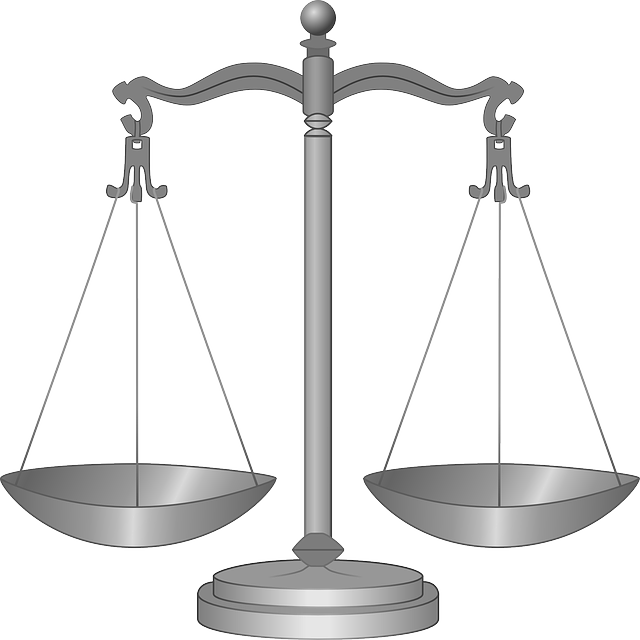Defendants in Oregon's complex criminal justice system require a comprehensive Oregon defense guide for navigating court structures, state/federal law interactions, and strict evidence rules. A qualified guide ensures fair trials by guiding defendants through crime-specific knowledge, evidentiary management, constitutional rights, witness examination, and strategic case preparation. Effective representation involves meticulous planning, skilled advocacy, and open client communication to challenge prosecution weaknesses and secure favorable outcomes within Oregon's legal framework.
“Unraveling the complexities of Oregon’s criminal justice system is crucial for anyone facing charges. This comprehensive Oregon defense guide navigates the pitfalls and provides an invaluable resource for accused individuals. From understanding legal rights and constitutional protections to recognizing common pitfalls, this article equips readers with essential knowledge.
Explore strategic planning, evidence handling, and witness management to build a robust defense. Mastery of these aspects can make all the difference in Oregon criminal cases, ensuring fair representation.”
- Navigating Oregon's Criminal Justice System: An Overview for Defendants
- Common Pitfalls in Oregon Criminal Defense: What Every Accused Person Should Know
- Understanding Legal Rights and Constitutional Protections in Oregon
- The Role of Evidence and Witnesses: Uncovering Potential Challenges
- Strategic Planning and Effective Representation: Building a Strong Oregon Defense
Navigating Oregon's Criminal Justice System: An Overview for Defendants

Navigating Oregon’s complex criminal justice system can be daunting for defendants, especially those new to the state or unfamiliar with legal processes. The first step in any criminal defense strategy is understanding the basics of how this system operates. Oregon’s court structure involves county courts, circuit courts, and a variety of specialized tribunals, each with specific jurisdiction and procedures.
Defendants facing charges should be aware of their rights and the potential pitfalls within this system. One key aspect to consider in an Oregon defense guide is the interplay between state and federal laws, as many cases involve both jurisdictions. Additionally, the state’s strict rules regarding evidence presentation, timelines for filing motions, and discovery processes require meticulous attention. Being informed about these procedures empowers defendants to actively participate in their legal defense, ensuring a fairer outcome.
Common Pitfalls in Oregon Criminal Defense: What Every Accused Person Should Know

In Oregon, criminal defense is a complex field filled with potential pitfalls for those accused of crimes. Understanding these traps is crucial for anyone facing charges to ensure a fair trial and mitigate potential outcomes. One common pitfall is miscommunication or lack of understanding between the defendant and their attorney. It’s vital to choose a qualified Oregon defense guide who specializes in the type of crime alleged, as different cases have distinct legal nuances.
Another frequent mistake is failure to preserve evidence and misshapen case presentations. Defendants should actively participate in their defense by keeping detailed records, documenting interactions with law enforcement, and ensuring their attorneys have all relevant information. Additionally, not all evidence presented in court is admissible; an Oregon defense guide can help navigate this, ensuring only valid and relevant proof is used to build a strong defense strategy.
Understanding Legal Rights and Constitutional Protections in Oregon

Understanding your legal rights is a cornerstone of any successful Oregon defense guide. The state’s constitution and laws offer significant protections to individuals accused of crimes, ensuring fair treatment throughout the legal process. For instance, Oregon guarantees the right to counsel, meaning every defendant has the opportunity to consult with an attorney to build their defense strategy. This right ensures that those accused can navigate complex legal systems and protect their interests effectively.
Additionally, the Fourth Amendment protections against unreasonable searches and seizures are firmly in place, preventing law enforcement from infringing on personal privacy. Oregon also adheres to the concept of due process, which requires the state to prove guilt beyond a reasonable doubt before securing a conviction. Knowing and invoking these constitutional rights can significantly impact an Oregon defense guide, shaping the trajectory of criminal cases.
The Role of Evidence and Witnesses: Uncovering Potential Challenges

In any Oregon defense guide, understanding the role of evidence and witnesses is crucial. These elements form the backbone of criminal cases, but they can also present significant challenges for defendants. Uncovering and addressing potential issues with evidence and witness reliability is an essential step in building a robust defense strategy. Lawyers must meticulously examine each piece of evidence to ensure its admissibility and authenticity, as well as question witnesses thoroughly to uncover biases or inconsistencies.
Witnesses, who can make or break a case, might offer testimonies that are subjective, unreliable, or even false. Cross-examining witnesses is an art, requiring sharp questioning techniques to expose weaknesses in their recollections or motivations for testifying. Additionally, Oregon’s rules of evidence govern what information can be presented in court, and lawyers must navigate this complex landscape to ensure their case stays on solid legal ground.
Strategic Planning and Effective Representation: Building a Strong Oregon Defense

In Oregon, navigating criminal charges requires strategic planning and effective representation for a robust defense. A comprehensive Oregon defense guide should start with meticulous case preparation. This involves thoroughly reviewing the evidence, understanding the legal standards applicable to the case, and identifying potential weaknesses in the prosecution’s argument. It’s crucial to build a solid strategy early on, as it can significantly influence the outcome.
Attorneys playing the role of Oregon defense advocates must be adept at presenting compelling narratives, challenging witness testimonies, and utilizing evidentiary rules to their advantage. They should also foster open communication with clients, ensuring a deep understanding of the case details. This collaborative approach allows for the development of tailored strategies that address the client’s unique circumstances, ultimately strengthening their position in Oregon’s criminal justice system.














